Trending
Muhammad Buhari International Airport, Maiduguri, Commences International Operations
Published
3 months agoon
By
Ekwutos Blog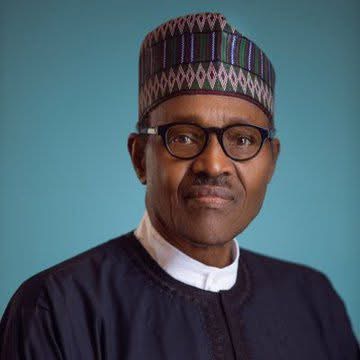
Muhammad Buhari International Airport, Maiduguri, Commences International Operations
Borno State Government donates two Fire Service Trucks to Muhammad Buhari International Airport, Maiduguri for smooth operations
Source: NTANewsNow
You may like
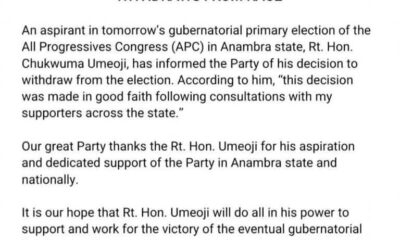

Anambra 2025: Defections Rocks APC as Party Heavyweights Quit Guber Race


Transfer: I’m yet to decide my future – Osimhen
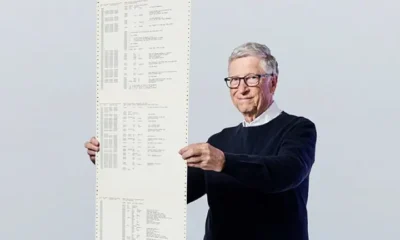

The 50-year-old code that reshaped the world: Bill Gates on the ‘revolution’ that started Microsoft


Renowned Bauchi cleric, Abdulaziz Dutsen Tanshi is dead


Scavenger dies, three hospitalised as military grenade explodes in Lagos
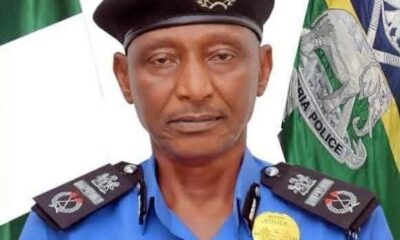

Adeyanju Commends AIG Gumel for Stance Against Emergency Declaration in Rivers State Amidst Persecution by IGP Egbetokun, Says Nigeria Need Courageous Men Like Him
Trending
BREAKING: Court bars Akpabio, Natasha Akpoti, and Senate from granting interviews over alleged misconduct case
Published
13 hours agoon
April 4, 2025By
Ekwutos Blog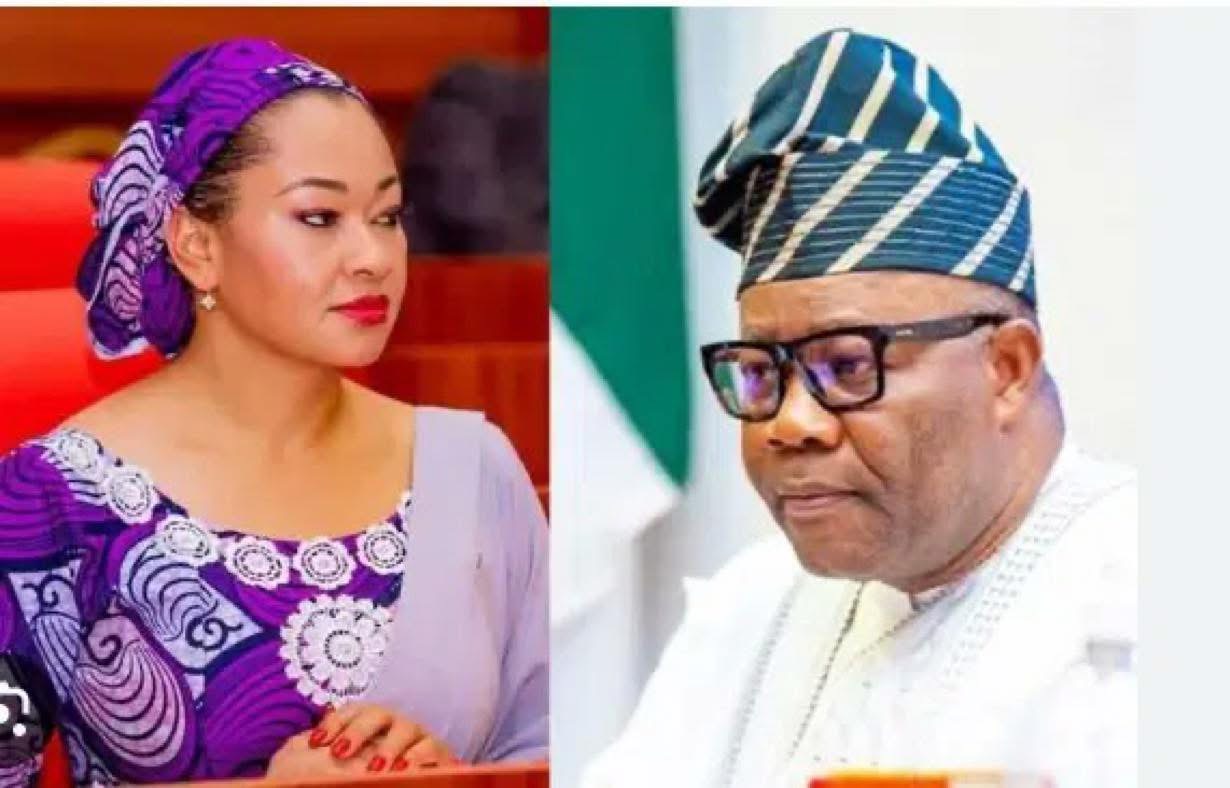
The Federal High Court in Abuja has barred Senator Natasha Akpoti-Uduaghan, Senate President, God’swill Akpabio and Senate from granting press, TV interviews and social media posts regarding the pending case on the suspension of the female lawmaker until the matter is decided.
Justice Binta Nyako declared this in her ruling on Friday, while restraining the parties and their lawyers.
Ekwutosblog previously reported that Justice Obiora Egwuatu, had withdrawn from Senator Natasha Akpoti-Uduaghan’s pending suit, which challenges her suspension by the Senate over allegations of misconduct, based on allegations of bias by one of those sued by her.
The Chief Judge John Tsoho eventually reassigned the matter to Justice Binta Nyako.
Nairametrics previously reported that Akpoti-Uduaghan had filed a motion ex parte, marked FHC/ABJ/CS/384/2025, suing the Clerk of the National Assembly (NASS), the Senate, the Senate President, and Senator Neda Imasuem, Chairman of the Senate Committee on Ethics, Privileges, and Code of Conduct.
The lawmaker sought an “order of interim injunction restraining the Senate’s committee, chaired by Imasuem, from proceeding with the purported investigation against her for alleged misconduct, which stemmed from events that occurred during plenary on February 20 and were referred by the Senate on February 25, pending the hearing and determination of the motion on notice for an interlocutory injunction.”
Ekwutosblog previously reported that amid the pending case, the Nigerian Senate went ahead to suspend Senator Akpoti-Uduaghan for six months, effective March 6, 2025, citing violations of Senate rules.
Justice Egwuatu later announced his withdrawal from the case, citing allegations of bias levelled against the court by one of the defendants.
The judge said that justice is rooted in confidence in the court and that once a litigant expresses his belief that there is bias or likelihood of bias on the part of the judge, it will not be in the interest of justice for the judge to continue.
What transpired in court
At the resumed hearing on Friday, J.S. Okutepa SAN, counsel for Akpoti, said that his case was urgent given that the suspension of his client which he is complaining of is for six months.
He called for streamlining of all processes and that the matter be resolved expeditiously.
- The court, Charles Iyoila, counsel for Clerk of National Assembly, Chikaosolu Ojukwu SAN for Senate, Kehinde Ogunwumiju SAN, counsel for Godswill Akpabio and Umeh Kalu SAN for fourth defendant, Senate Committee chair, agreed to expedite the proceedings alongside Okutepa.
- However, Kehinde Ogunwumiju said that motions for injunctions has to be attended to urgently because, according to him, Natasha has been granting interviews on BBC and CNN and other media houses which he believes are prejudicial to the course of justice.
- Okutepa faulted the line of submission of Ogunwumiju, saying there is also a Senator (from the South East) who has been appearing on TV and speaking on the issue.
Okutepa insisted that the court’s orders should include all privies and any member of the Senate.
“They should maintain decorum,” he said.
What the judge said
Ruling on the application, Justice Binta said there should be “no press interviews by parties and counsel as regards the subject matter of this case.”
“No streaming or social media posts as regards this case by any of the parties and counsel.
“No TV interviews analyzing the subject matter of this case while the case is subjudice,” she ruled.
She equally directed the parties to ensure “total media blockade” on this case until this matter is decided.
The court subsequently adjourned the matter to May 12, 2025 for hearing.
Backstory
The altercation between Senator Akpoti-Uduaghan and Senate President Akpabio became widely publicized after she was asked to change her seat during plenary.
On February 28, 2025, Akpoti-Uduaghan accused Akpabio of making inappropriate advances toward her during a visit to his home in December 2023.
Her suspension has sparked mixed reactions within the political landscape.
While some lawmakers and analysts view the decision as a necessary enforcement of legislative discipline, others argue that the penalties are excessive and could set a dangerous precedent for stifling dissent within the Senate.
Trending
Anambra Native Doctors in Court: Akwa Ọkụkọ, Eke Hit, and Onyeze Jesus Face Justice
Published
15 hours agoon
April 4, 2025By
Ekwutos Blog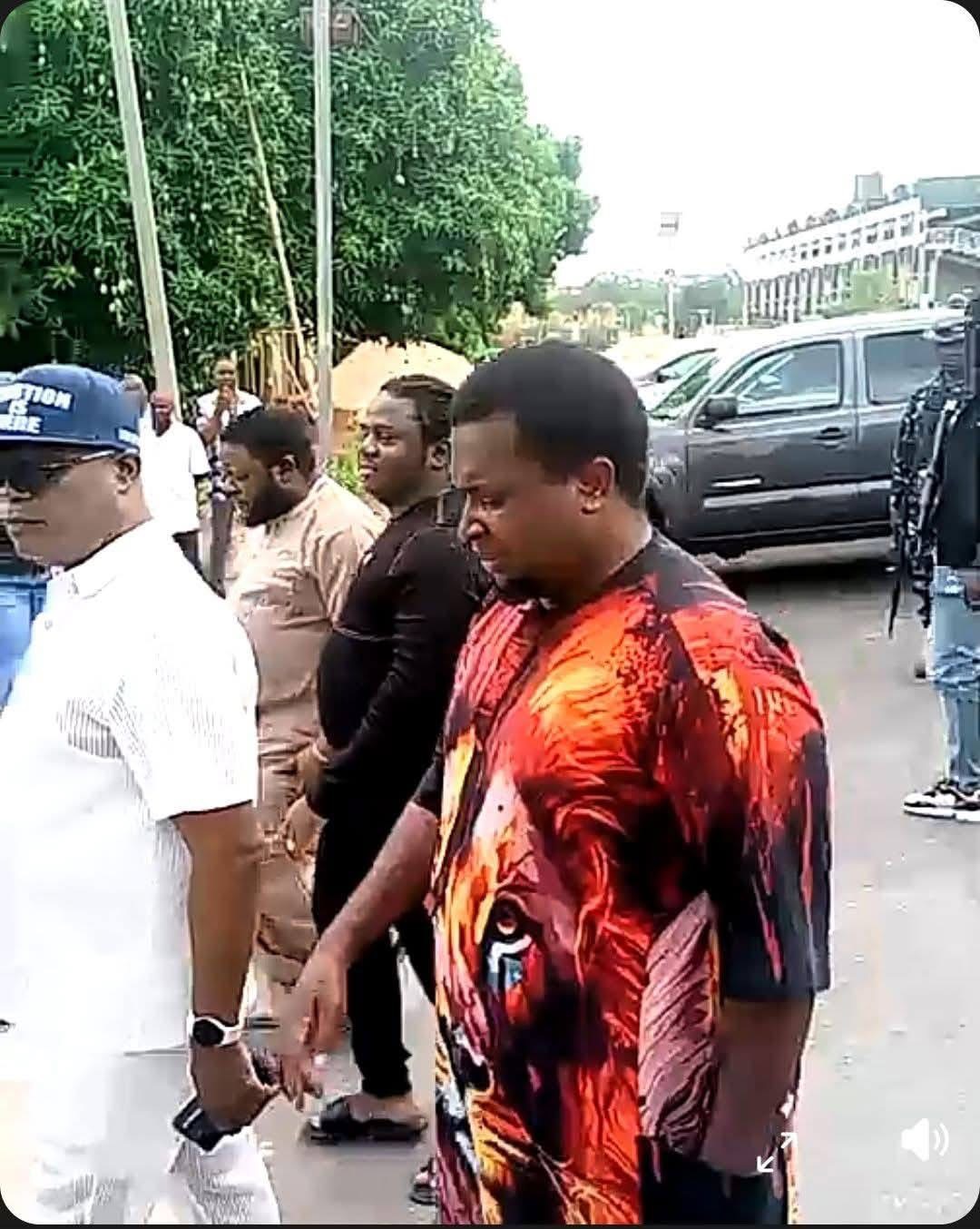
In a significant development, three notorious native doctors from Anambra State, Akwa Ọkụkọ, Eke Hit, and Onyeze Jesus, were spotted in court today, 4/4/2025.
The trio is facing charges related to their alleged involvement in “quick riches” rituals and other illicit activities.
According to Ekwutosblog metro, the Anambra State Government has filed a six-count charge against Akwa Ọkụkọ (Chidozie Nwangwu) and 28 others, including Eke Hit and Onyeze Jesus. If found guilty, they could face up to 20 years in prison.
Onyeze Jesus, the founder of Children of Light Anointing Ministries, had been under scrutiny for his controversial rituals, which involved taking followers to a river for “quick riches” ceremonies. He had also been accused of idol worship and other nefarious activities.
The arrests and subsequent court appearances of these native doctors are part of the Anambra State Government’s efforts to crack down on ritual killings and other crimes in the state.
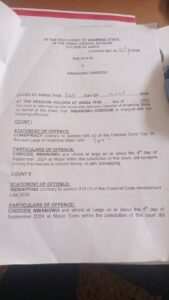
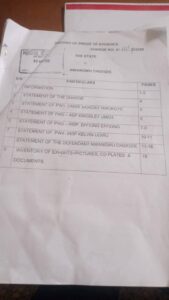


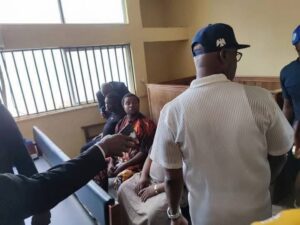
Trending
South Korea’s President Yoon Suk-yeol impeached over martial law order
Published
17 hours agoon
April 4, 2025By
Ekwutos Blog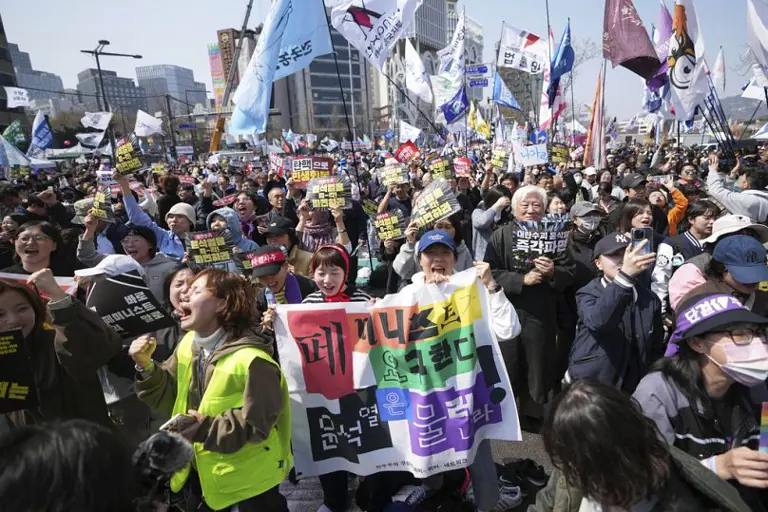
President Yoon Suk Yeol removed from office as the court upholds impeachment. ‘I am truly sorry and heartbroken that I could not live up to your expectations,’ ousted leader says
The Constitutional Court upheld the impeachment of President Yoon Suk Yeol, resulting in his immediate removal from office. The decision to remove the president from office was unanimous, with all eight Constitutional Court justices voting in favor, 8–0.
The ruling came 111 days after the National Assembly passed the impeachment motion against Yoon, accusing him of treason for declaring martial law on Dec. 3.
Acting Chief Justice Moon Hyung-bae began reading the reasoning for their ruling at 11 a.m., and the decision to remove Yoon from the presidency was finalized at 11:22 a.m.
“The respondent declared the martial law in question with the intent of overcoming a standoff with the National Assembly, then deployed military and police forces to obstruct the Assembly’s exercise of its constitutional authority, thereby denying the principles of popular sovereignty and democracy,” Moon said, emphasizing that Yoon abandoned his responsibility to safeguard the Constitution and gravely betrayed the trust of the sovereign people of the Republic of Korea.
“Given the significant negative impact and widespread repercussions of his violations of the constitutional order, it is recognized that the benefit of upholding the Constitution by removing the respondent from office far outweighs the national costs associated with dismissing a sitting president. Accordingly, the court issues the following unanimous decision: … Ruling: the respondent, President Yoon Suk Yeol, is hereby removed from office,” the acting chief justice read in the ruling.
There were no dissenting justices, and only a few expressed separate opinions on specific issues. This marks the first dismissal of a sitting president in Korea in eight years, following the impeachment of former President Park Geun-hye in March 2017. Under Article 68 of the Constitution, a new presidential election must be held within 60 days of the court’s ruling.
In Park’s impeachment case, the Constitutional Court upheld the decision on March 10, 2017. Exactly 60 days later, on May 9, a presidential election was held, resulting in the victory of Moon Jae-in, former leader of the Democratic Party of Korea.
With the impeachment ruling now issued, the 60-day deadline falls on Tuesday, June 3, making it highly likely that the presidential election will be held on that day or earlier.
Following Yoon’s immediate removal, he and first lady Kim Keon Hee must vacate the presidential residence in central Seoul’s Hannam-dong.
If they return to their previous home in southern Seoul, where they used to live before Yoon’s inauguration, security measures will be provided. Under the current law, an impeached president who fails to complete their term is entitled to up to 10 years of security protection.
Similarly, Park was only able to move to her private residence in southern Seoul two days after her impeachment ruling, due to the time needed to arrange security measures. Following the top court’s decision, acting President Han Duck-soo stated in a national address that he takes the unprecedented impeachment of a sitting head of state — the second in the nation’s constitutional history — with great gravity. He pledged to ensure there would be no gaps in national security and foreign affairs during his tenure as acting president.
He also emphasized his commitment to addressing ongoing economic and trade issues without disruption, maintaining public order, and thoroughly preparing for various disasters.
Yoon also issued a statement about three hours after the court’s ruling, saying, “It has been a great honor to serve the Republic of Korea.”
He continued, “I am deeply grateful to all of you who supported and encouraged me despite my many shortcomings. I am truly sorry and heartbroken that I could not live up to your expectations. I will always pray for our beloved nation, Korea.”
The chief of staff and all senior secretaries at the presidential office tendered their resignations later in the afternoon.Meanwhile, Kwon Young-se, interim leader of the ruling People Power Party (PPP), expressed the party’s regret and apologies to the public following the impeachment ruling, saying the party takes the Constitutional Court’s decision seriously and humbly accepts it.
Speaking to reporters at the National Assembly, Kwon acknowledged that opinions may differ but emphasized, “We firmly believe that respecting this decision is the only way to uphold democracy and the rule of law. We see this as part of our society’s progress toward becoming a more mature democracy. Above all, I extend my deepest apologies to the people.”
He added that the party takes the public’s criticism and reprimands to heart and will accept them fully.
Rep. Lee Jae-myung, leader of the main opposition Democratic Party of Korea, stated that his party will do its utmost to ensure that the tragedy of constitutional disruption is never repeated and that politics becomes a source of hope for the people and the nation.
“The court has ruled to remove former President Yoon, who destroyed the Constitution and threatened democracy and the public with the power and military force entrusted to him by the people,” Lee said in an emergency statement at the National Assembly. “The impeachment of a sitting president for the second time in our nation’s history is a tragedy that must never happen again. This is a moment for deep reflection and a profound sense of responsibility for everyone in politics, including myself.”
Lee further stated that Korea holds a unique place in world history as a nation where unarmed citizens peacefully succeeded in toppling authoritarian power, emphasizing that the country’s democracy has been revived by the will of the people.

Anambra 2025: Defections Rocks APC as Party Heavyweights Quit Guber Race

Transfer: I’m yet to decide my future – Osimhen

The 50-year-old code that reshaped the world: Bill Gates on the ‘revolution’ that started Microsoft
Trending

 Trending5 months ago
Trending5 months agoNYA demands release of ‘abducted’ Imo chairman, preaches good governance
- Business5 months ago
US court acquits Air Peace boss, slams Mayfield $4000 fine

 Politics5 months ago
Politics5 months agoMexico’s new president causes concern just weeks before the US elections
- Entertainment5 months ago
Bobrisky transferred from Immigration to FCID, spends night behind bars
- Entertainment5 months ago
Bobrisky falls ill in police custody, rushed to hospital

 Politics5 months ago
Politics5 months agoRussia bans imports of agro-products from Kazakhstan after refusal to join BRICS

 Politics5 months ago
Politics5 months agoPutin invites 20 world leaders
- Politics1 year ago
Nigerian Senate passes Bill seeking the establishment of the South East Development Commission.

